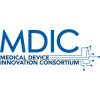The medical device industry did not ring in the New Year with good news. Just a month ago, the industry thought it was close to yet another suspension, but instead, the infamous device tax went back into effect on January 1 following a two-year suspension. As a result of the tax reform bill that passed last month, medical device manufacturers will once again be subjected to the 2.3% excise tax on product sales.
The impact that the reinstatement of the device tax will have on the industry remains to be seen, but according to the Department of Commerce, the industry lost nearly 29,000 jobs between 2012 and 2015, and the tax has been blamed for much of this loss by many, including AdvaMed. “Since its enactment, the medical device tax has had a significant negative impact on medical innovation and has resulted in the loss or deferred creation of jobs, reduced R&D, and slowed capital expansion,” AdvaMed President and CEO Scott Whitaker wrote in a letter to President Trump last month. “The onerous effects of this tax have directly impacted a dynamic and innovative sector that provides quality manufacturing jobs, at above average wages, here in the United States.”
One of the biggest arguments against the device tax is its hindrance to innovation, especially due to the fact that it hits the small companies the hardest. And these small companies may not benefit from the reform bill’s corporate tax cut either, further magnifying the negative financial impact of the tax.
“What we have seen from past experience is that it comes out of funding for product development, research and the jobs associated with those things,” said J.C. Scott, AdvaMed’s head of government affairs, told the AP. “We fear we will see employment freezes or reductions and a slowdown in the pipeline for medical innovation.”







